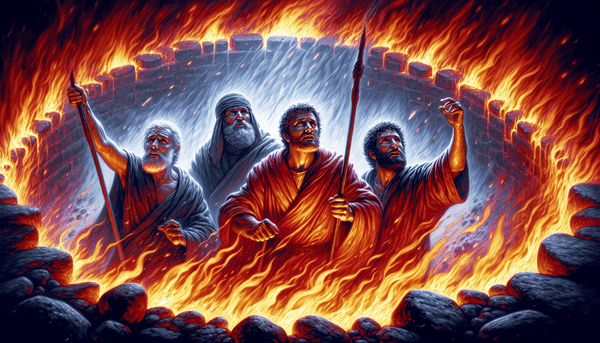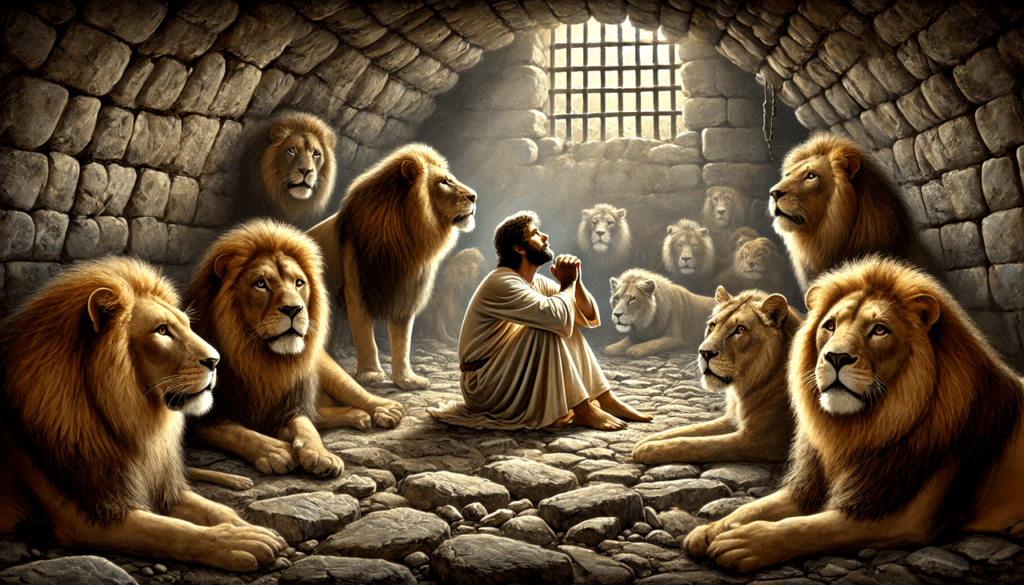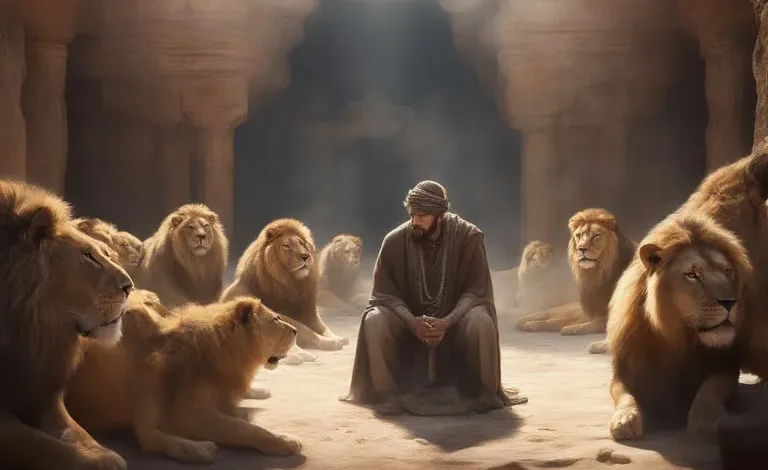Introduction to the Prophet Daniel
The prophet Daniel, taken captive to Babylon, remained faithful to God. His story showcases divine wisdom, prophecy, and unwavering faith in challenging times.
Daniel’s Early Life and Captivity
Daniel was born into a noble Jewish family in Jerusalem. However, in 605 B.C., King Nebuchadnezzar of Babylon conquered Jerusalem and took Daniel, along with other young men of noble birth, into captivity (Daniel 1:1-4). These captives were to be trained in Babylonian culture and language to serve in the king’s court.
Despite being in a foreign land, Daniel remained faithful to God. He and his three friends—Hananiah, Mishael, and Azariah—refused to eat the king’s rich food, opting instead for vegetables and water. God blessed them with exceptional wisdom and health (Daniel 1:8-17).
Prophet Daniel Interprets Nebuchadnezzar’s Dreams

King Nebuchadnezzar had a troubling dream that none of his wise men could interpret. When Daniel sought God in prayer, the mystery was revealed to him. Daniel explained that the king’s dream depicted the rise and fall of world empires (Daniel 2:31-45). This interpretation led to Daniel being elevated to a high position in Babylon (Daniel 2:48-49).
The Fiery Furnace and Daniel’s Friends

Daniel’s three friends refused to bow to Nebuchadnezzar’s golden image and were thrown into a fiery furnace. Miraculously, God preserved them, and they were seen walking unharmed with a divine figure inside the fire (Daniel 3:19-27). This event demonstrated God’s power to deliver His faithful servants.
Prophet Daniel in the Lion’s Den

Under the rule of King Darius, Daniel’s enemies conspired against him, leading to a decree that banned prayer to anyone except the king. Daniel continued to pray to God, resulting in his being thrown into a lion’s den. However, God sent an angel to shut the lions’ mouths, and Daniel emerged unharmed (Daniel 6:16-23). This miraculous event led King Darius to acknowledge the greatness of Daniel’s God (Daniel 6:25-27).
Daniel’s Prophetic Visions
Daniel received several divine visions concerning future kingdoms, the coming of the Messiah, and end-time events.

- The Vision of the Four Beasts: Daniel saw four beasts representing different world empires (Daniel 7:1-8, 15-27).
- The Ram and the Goat: This vision symbolized the Medo-Persian and Greek empires (Daniel 8:1-14).
- The 70 Weeks Prophecy: One of the most significant prophecies, predicting the coming of the Messiah (Daniel 9:24-27).
- The End Times: Daniel’s final vision provides insight into the tribulation and resurrection (Daniel 12:1-4).
Daniel’s Later Years and Death
Daniel served in high governmental positions under multiple kings, including Nebuchadnezzar, Belshazzar, Darius, and Cyrus. His final years were spent in Babylon, where he continued receiving divine revelations. Though the Bible does not explicitly mention his death, tradition holds that he passed away in Babylon, remaining faithful to God until the end.
Conclusion
The life of Daniel is a powerful example of faith, obedience, and perseverance. His story encourages believers to trust in God’s plans and remain steadfast in their faith, even in difficult circumstances. Through his visions, Daniel provides a glimpse into God’s sovereign control over history and His promises for the future.
FAQs
1. What was Daniel’s main role in Babylon?
Daniel served as a high-ranking official and advisor to several Babylonian and Persian kings, interpreting dreams and visions with divine wisdom.
2. Why did Daniel refuse to eat the king’s food?
Daniel refused the king’s food to remain obedient to God’s dietary laws and to demonstrate his commitment to holiness (Daniel 1:8).
3. What is the significance of the 70 Weeks prophecy?
The 70 Weeks prophecy (Daniel 9:24-27) outlines a timeline predicting the coming of the Messiah and future end-time events.
4. How did Daniel survive the lion’s den?
God sent an angel to shut the lions’ mouths, protecting Daniel from harm (Daniel 6:22).
5. What lessons can we learn from Daniel’s life?
Daniel teaches us about unwavering faith, the power of prayer, and trusting in God’s sovereignty, no matter the challenges faced.

1 thought on “The Prophet Daniel: His Life, Prophecies, and Faith in God”